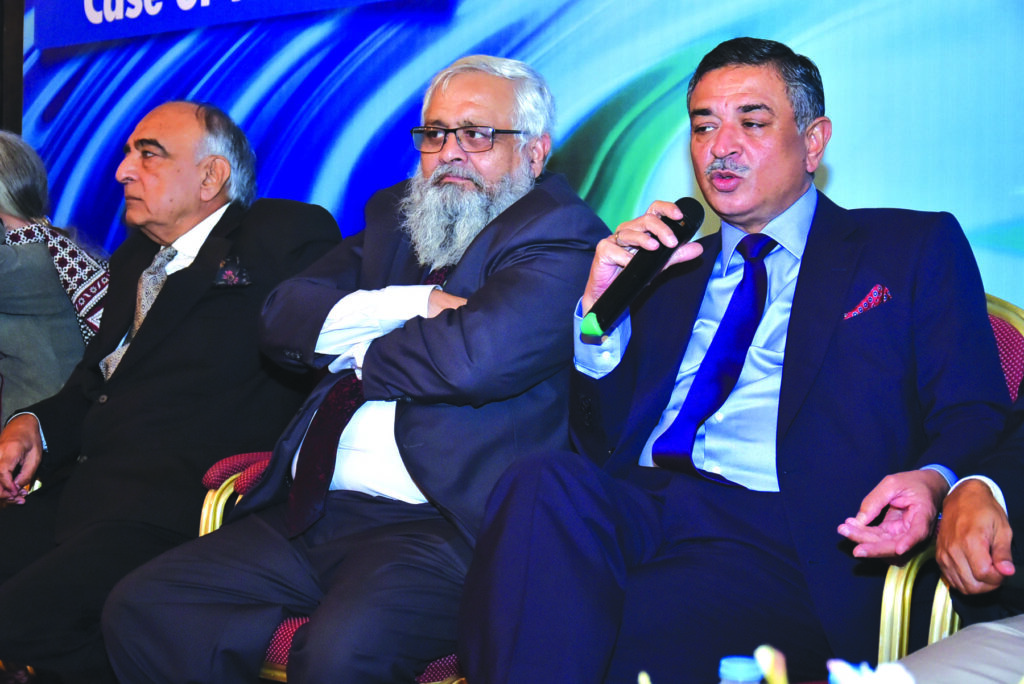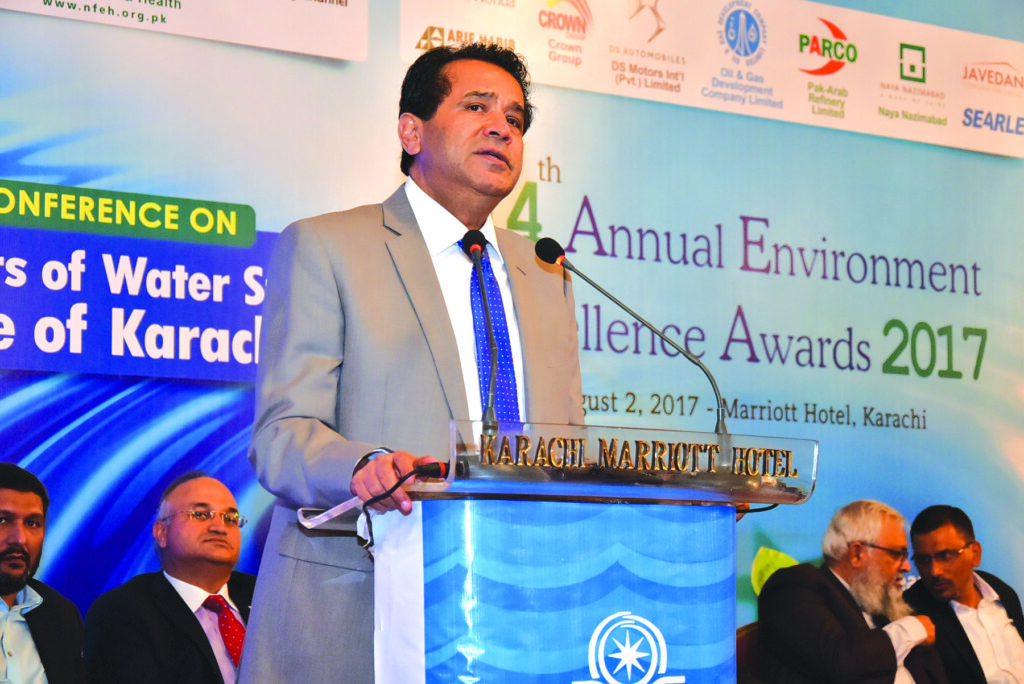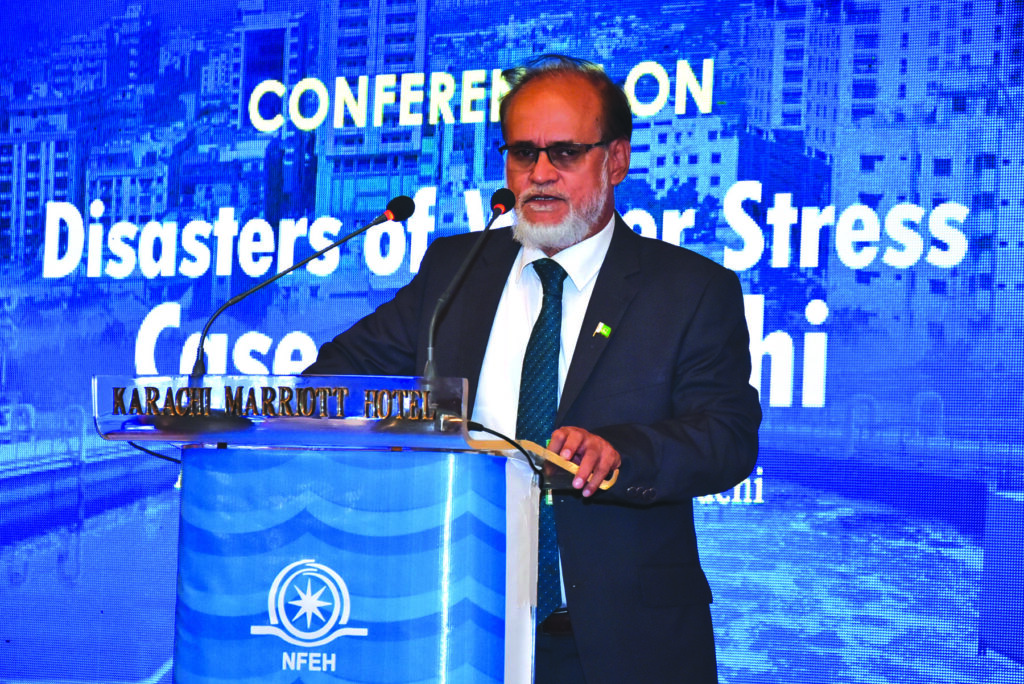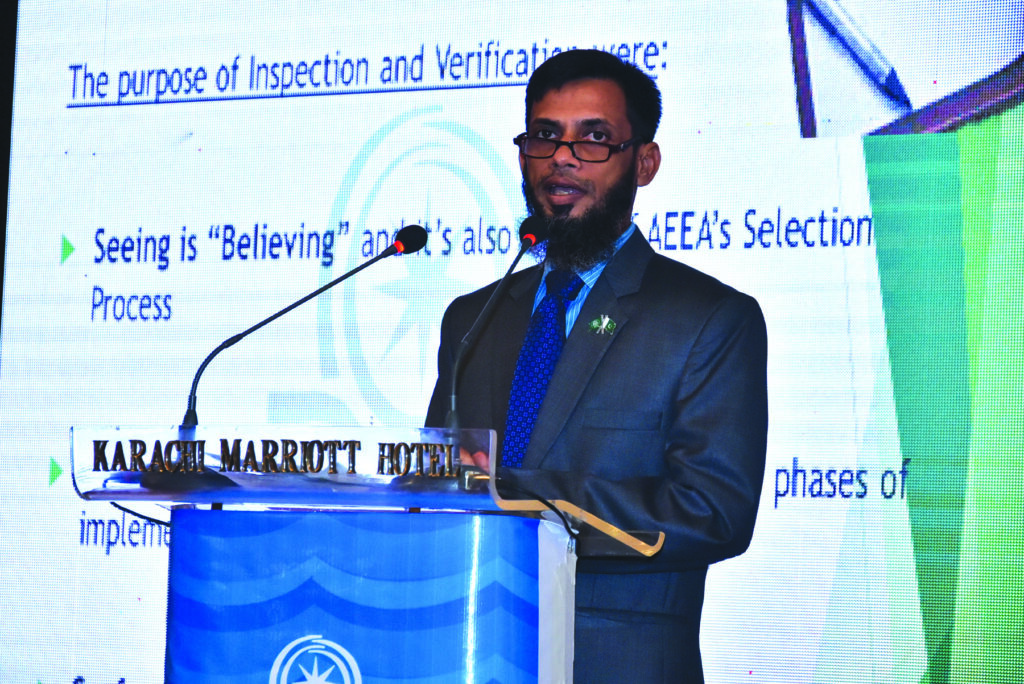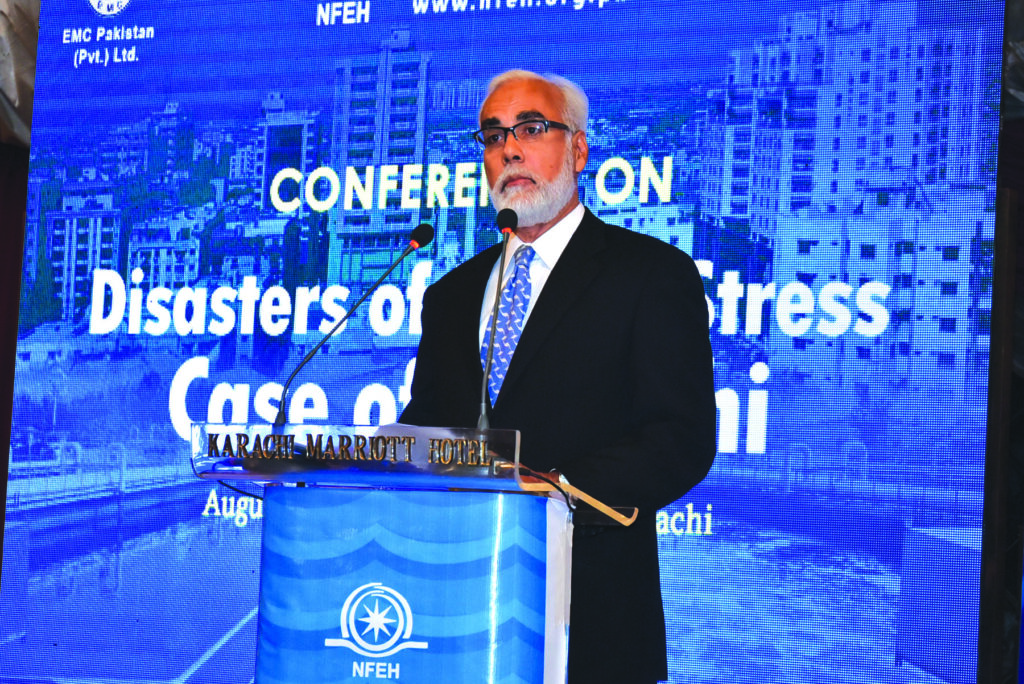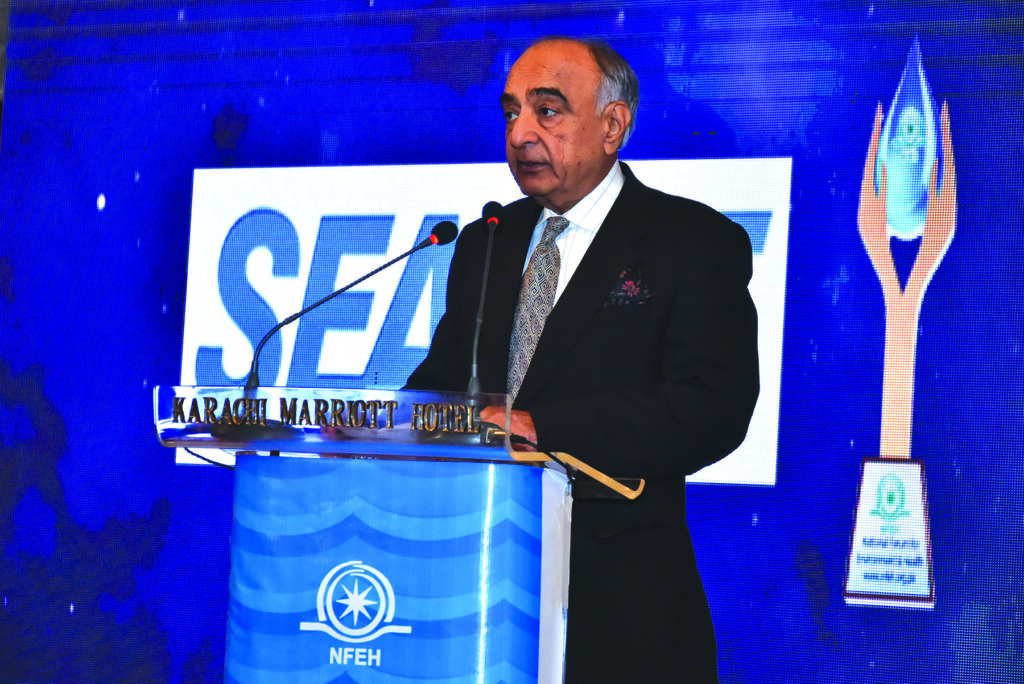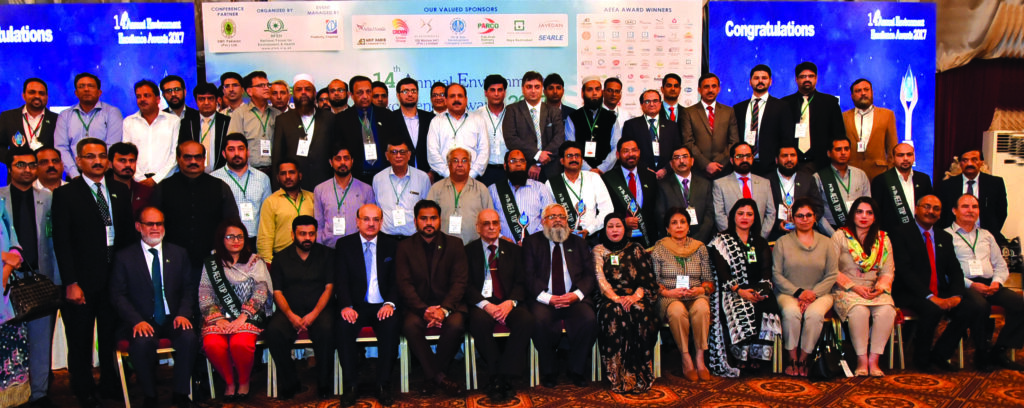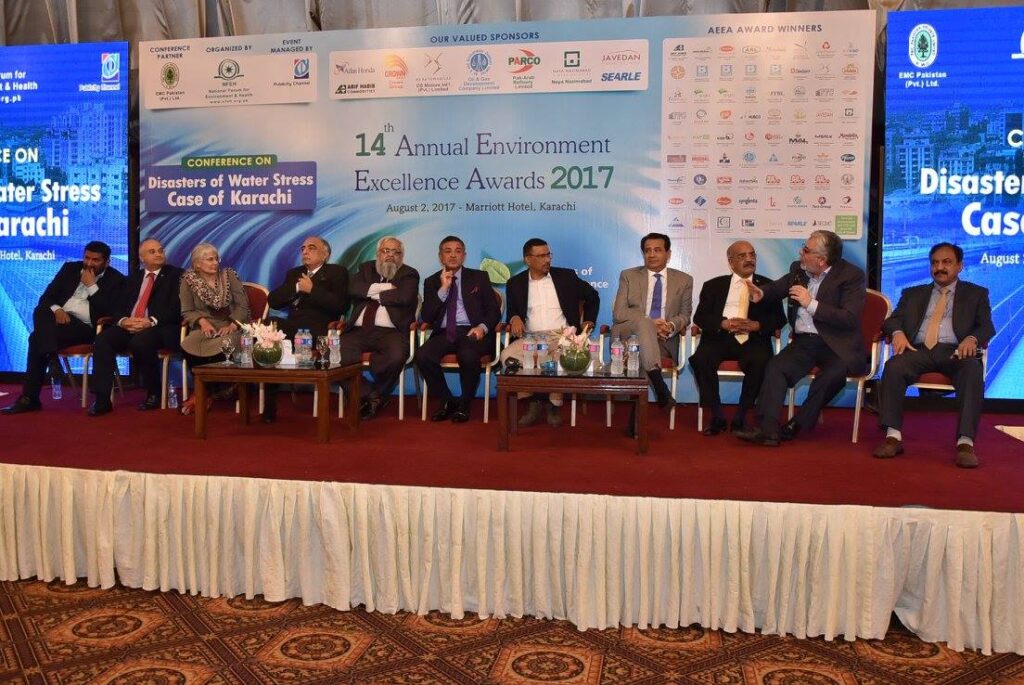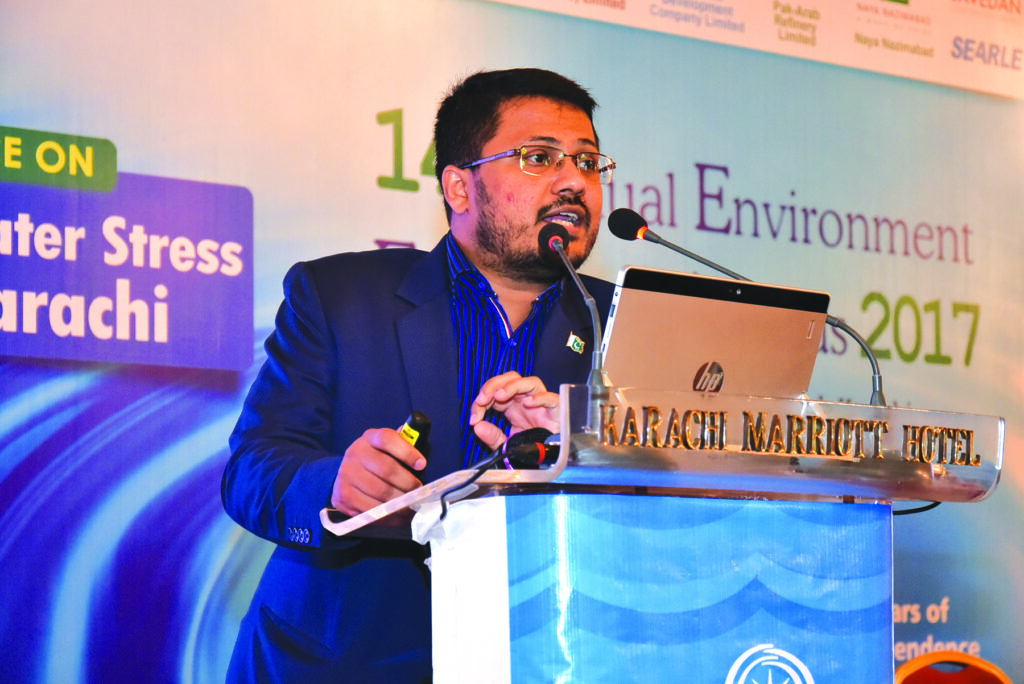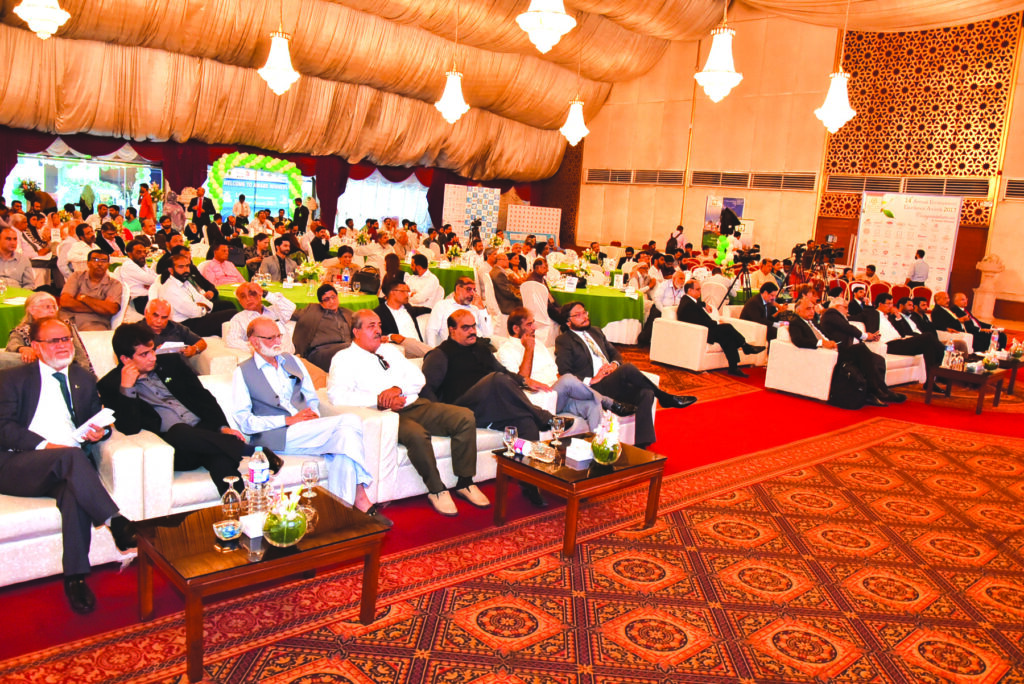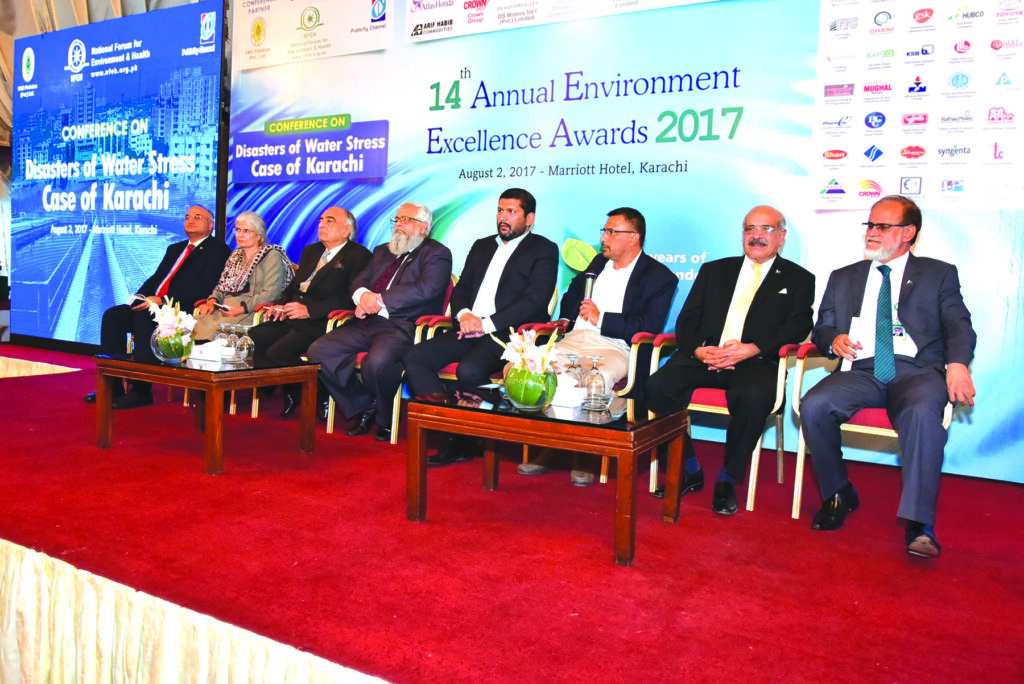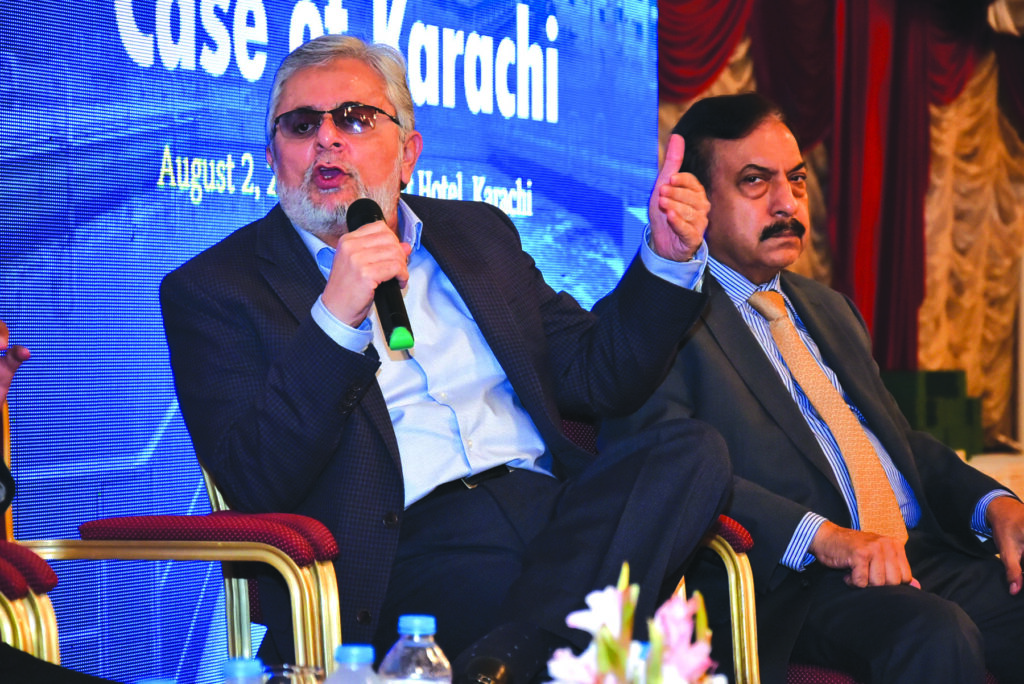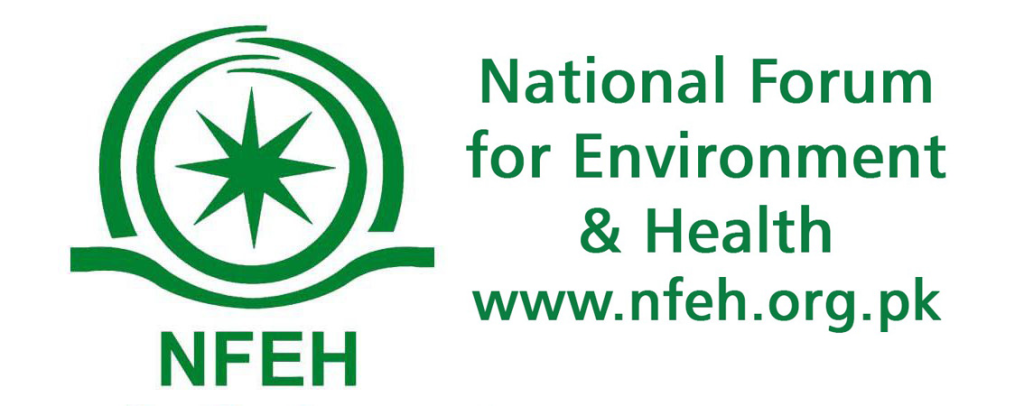Conferences on disasters of water stress KWSB requires another two years to filter all water being supplied to Karachi, moot told
It will take up to two years for Karachi Water & Sewerage Board (KWSB) to build the new facilities or do overhaul of the existing ones for filtration of all quantity of water being supplied to residents of the city.
Till the time construction of new filtration plants and revival of the existing ones got completed, vast quantity of water being supplied to residents of Karachi-up to 90 per cent according to some recent scientific surveys-would remain unfiltered.
Audience of a moot titled “Disasters of water stress: A case of Karachi” were informed this as a number of participants of the moot were keen to know about exact time period required by the KWSB to build sufficient filtration facilities to ensure supply of clean potable water to all residents of the city.
The National Forum for Environment & Health (NFEH) and Environmental Management Consultants, Pakistan (EMC) jointly organized the moot.
Syed Hasan Ejaz Kazmi, a project director at KWSB, informed participants of the conference that up to two years were required to do requisite civil and mechanical works to build sufficient new water filtration facilities or rebuild the existing ones for people of Karachi.
He said that filtration of potable water didn’t mean mere installation of chlorinators as the filtration process was done through a lot of mechanical work, which required import of machinery from the abroad.
He said the KWSB didn’t have sufficient finances to build such filtration schemes on its own as it had to depend upon the provincial government to approve and release funds for such projects.
Environmentalist Saquib Ejaz Hussain informed the audience that just one out of seven water filtration plants of KWSB in the city was functional as for such reasons a recent survey had found contamination in up to 91 per cent potable water samples collected from different areas of Karachi.
He said that KWSB lacked any modern scientific mechanism involving use of well-equipped laboratories to check quality of drinking water being supplied to people of Karachi.
He said that up to 450 million gallons of waste water was being discharged into sea without any treatment on a daily basis as the city didn’t have any such facility to treat effluents constantly being discharged by industries.
He said that losses in water supply and distribution systems of KWSB stood at 35 per cent owing to which only 422 MGD water remained accounted for out of 650 MGD being supplied to the city.
He said that as per the international standards such system losses for any water utility like the KWSB should not exceed beyond three per cent.
Mr. Hussain said that six legally established water hydrants were accounted for 12 MGD daily water being supplied to the city as annual income from these hydrants stood around Rs 4.38 billion.
He said that Karachi was facing a shortfall of 732.5 MGD against water demand of 1,155 MGD given that the per capita water requirement stood at 35 gallons per day.
Vice-Chancellor of NED University of Engineering & Technology Prof. Dr. Sarosh Hashmat Lodi said that a number of sites were available in suburbs of Karachi especially around Kirthar National Park where small dams could be established to resolve issue of water shortage in the city.
He said the project of Hub Dam had been conceived in 1963 while its construction was later completed in 1981 as this dam was primarily built to develop a green belt in surroundings of the city. Later the dam was used to overcome water shortage in the city.
He said that menacing situation in water sector like exploitation by water tanker service could be tackled through a strong political will on the part of the governmental authorities concerned.
Prominent industrialist Zubair Motiwala said that construction of combined effluent treatment plant could provide the best feasible solution to issue of constant discharge of industrial effluents into storm water drains of the city as the industrial waste water ultimately fell into Arabian Sea.
He said that there should not be uniform implementation of NEQS (National Environment Quality Standards) for waste disposal system adopted for industries of Karachi and that for an industrial city like Faisalabad. This is because industrial waste water from Karachi-based industries could never be used for human consumption owing to its ultimate discharge into sea.
Chairman of Association of Builders and Developers of Pakistan Mohisn Sheikhani said that mere construction of high-rise buildings could not be blamed for ever worsening situation of water shortfall in the city.
He said that builders associated with real estate sector had been doing a great service by constructing multi-storied residential buildings as otherwise ever increasing influx of population coming to the city would have no choice but to live in shanty settlements .
He said the government had no reliable data regarding the slum dwellers as increase in number of shanty settlements could only aggravate civic problems of a city like Karachi.
In his concluding remarks, Deputy Mayor Karachi Dr. Arshad Abdullah Vohra said it was so unfortunate that Karachi Metropolitan Corporation had zero responsibility regarding affairs of water supply, sewerage disposal, and environmental management of the city.
He said that present provincial government instead of doing devolution or decentralization of municipal and civic affairs of the city had done centralization of important civic subjects in violation of the 18th Constitutional Amendment, which had devolved a number of subjects of governance from the centre to the provinces.
He said that provincial government’s measures like establishing Sindh Building Control Authority, Sindh Solid Waste Management Board, and wresting back the control of KWSB instead of giving autonomy and powers to civic agencies of the city had led to further deepening of municipal crises of the city as water shortage was only one such issue.
The deputy mayor lamented the situation that a project of four combined effluent treatment plants for industrial estates of the city had been approved during regime of General (retd) Pevez Musharraf with release of funds but later governments never implemented the project owing to which problem of environmental degradation got aggravated.
EMC CEO Syed Nadeem Arif, NFEH President Naeem Qureshi, and Vice-President of FPCCI Mirza Ishtiaq Baig also spoke on the occasion and called for adopting various water conservation measures for resolving issue of water shortage.
They were of the view that personal consumption of water should be monetized by the city’s water utility by adopting the system of water metering for household consumption.
ENVIRONMENT AWARDS:
Later, some 67 companies, public, and private sector entities were given 14th Annual Environment Excellence Awards-2017 on basis of their outstanding performance for the cause of environmental protection and conservation. Some five organizations were given awards for their active participation in different tree plantation drives while three media persons were also conferred awards for their journalistic contributions towards the cause of environment.
